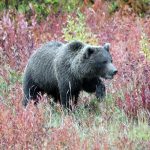Several anti-hunting groups were quick to take credit when news of declining hunter numbers broke, but a closer look at the data suggests the numbers are more reflective of changing demographics than changing attitudes, said a release by Delta Waterfowl.
Accordin to the release, while its true hunting participation has dropped precipitously from its 1975 peak and hunting has been losing market share, concerns about the future based strictly on the license sales ignore two undeniable forces that have dramatically skewed the numbers-the baby boom generation and urbanization.
This index shows hunting has not kept pace with the overall population growth, but thats only part of the story. According to the national survey, 49% of all hunters are rural males, 91% of all hunters are males, and rural residents are four times more likely to hunt than urbanites. These statistics, which have changed only slightly since the 1991 survey, clearly define the prototypical hunter as a rural male.
While the total population has increased steadily since 1955, the pool of likely participants-rural males-has increased only fractionally.
In 2006 rural males (13%of the 16 and older population) comprised a disproportionate 49 percent of hunters over 16. Twenty-three percent of rural males hunt as opposed to just 6 percent of urban males.
Hunting grew twice as fast as the rural population through the mid-1970s and early 80s, but that growth was fueled by 80 million baby boomers who by 1980 comprised nearly 60 percent of the hunting population.
Hunter numbers tapered off in the last two surveys as baby boomers began dropping out, and future decreases are inevitable as boomers age and the urban population continues to expand. Given these demographic realities, it is unlikely hunter numbers will ever return to the glorious levels they once enjoyed.
The prototypical hunter of the 1970s and 80s is slowly fading from view, and the pool of candidates to replace him is shrinking. If hunter numbers are to remain stable in the post-boom era, outdoor interests must create a new mold from which to cast the next generation of hunters.
Meanwhile, we can take comfort in the knowledge that the numbers arent as bad as our critics would have us believe.















